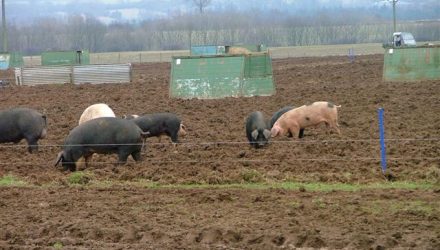Pork producers in the United States are bracing themselves for a second round of retaliatory tariffs from China and Mexico, which could hamper the revenue of businesses and affect ETFs that focus on agribusiness, such as the VanEck Vectors Agribusiness ETF (NYSEArca: MOO).
MOO seeks to replicate the price and yield performance of the MVIS® Global Agribusiness Index. 50% of the companies included in the index derive their revenues from agri-chemicals, animal health and fertilizers, seeds and traits, from farm/irrigation equipment and farm machinery, aquaculture and fishing, livestock, cultivation and plantations and trading of agricultural products.
After U.S. President Donald Trump’s administration placed duties on aluminum and steel, Mexico responded with 10 percent tariff on all chilled and frozen pork muscle that went into effect on June 5. The second round of tariffs will double that tariff to 20 percent on Thursday.
China is scheduled to start its collection of an additional 25 percent duty this Friday on American pork products–just a small part of its retaliatory tariff target on $34 billion worth of U.S. goods in a response to U.S. action against Beijing for allegedly stealing intellectual property.
“We put a halt on all investment, not just because we will be losing money, but because we don’t know if growing in the U.S. is the right move if we won’t be an exporting country,” said Ken Maschhoff, chairman of Maschhoff Family Foods and co-owner of the nation’s largest family-owned pork producer.
Compounding the possible negative effects of the tariffs is the fact that MOO is non-diversified. Thus far, the MVIS Global Agribusiness Index has been choppy, particularly though April and June where the trade disputes racked the markets.
